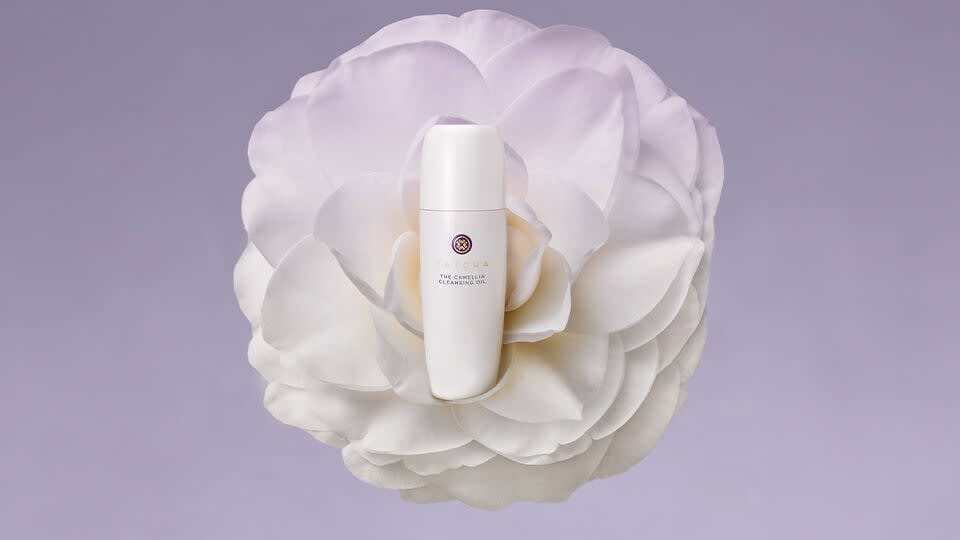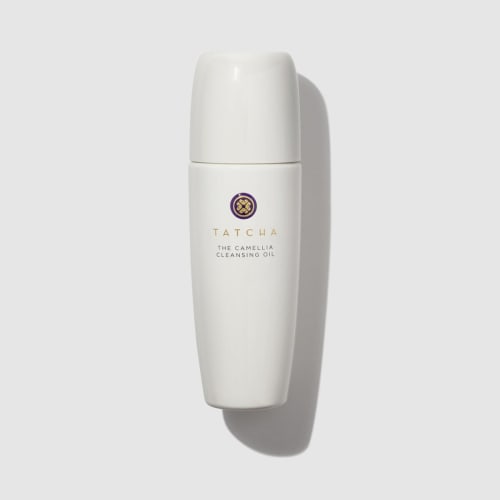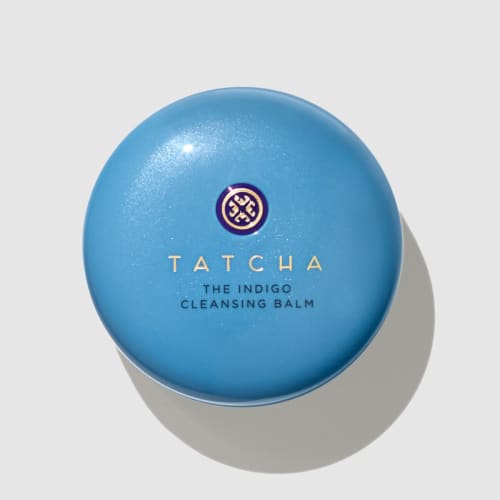Face washes come in nearly endless shapes, sizes, and formulas. But if you’re looking for benefits beyond a mere face wash, here’s why cleansing oil might be right for you.

Allow us to paraphrase a popular idiom by saying: There are many ways to wash a face.
The metaphorical meaning is that there are often many means to the same end, but it’s also true in the context of skincare. There are many different ways in which skin can be properly cleansed. The choice of which cleanser is usually calculated according to many different factors, from the specific properties of someone’s skin to the scent preferences of the person behind the routine.
Cleansers come in a wide variety of formulas. There are face washes that smell like flowers and others that smell like fruit. There are plenty with no scent at all. Some are jelly, some are creamy. If they all have one thing in common, it’s their aim: To remove dirt, makeup, dead skin, sweat, and other impurities from your skin. After that, they differ in almost every way. Many face washes are similar; few are identical.
One of the first things you may notice about your cleanser is its texture. Is it lightweight, like a water-based gel, or thicker, like an oil-based balm? Oils, in particular, have a long history of use around the world, and have been incorporated into skin care preparations for hundreds and even thousands of years. In fact, there are many benefits to using cleansing oils in your own skincare routine.
What is cleansing oil?
The chemical definition of an oil is a fat that is liquid at room temperature. They’re hydrophobic, (they don’t mix with water) and lipophilic (they do mix with other oils). Oils are found everywhere in our world, for everything from food to fuel to perfume. Oils can come from a variety of sources. Cooking oils, for one example, can come from animals, plants, or be made in a lab using synthetic materials, according to Michigan State University’s Center for Research on Ingredient Safety. There are oils that cleanse car engines, and oils that cleanse wood furniture, and even oils believed to cleanse spirits.
Cleansing oils, which are made with plant oils, simply describe oil-based (as opposed to water-based) face washes that, when lathered with a little water, remove unwanted impurities from the dense matrix of the top layers of skin. But that’s not all—in fact, there are many benefits to the method of cleansing skin with oil.
How does cleansing oil work on skin?
Applied to skin, oils work differently than other oils we consume. Think again of the ubiquity of oils. Oils are everywhere, including in our skin, which creates its own oily mixture, called sebum, to lubricate and moisturize the skin. But too much sebum can cause skin issues like breakouts and clogged pores, at least according to the American Academy of Dermatologists.
One way to deal with excess sebum is, to paraphrase another popular idiom, fight oil with oil. Lipophilic oil cleansers attract sebum, as well as the oils found in makeup and skincare. (Because oils are so good at breaking down these kinds of products, dermatologists at the Cleveland Clinic recommend beginning with an oil when double-cleansing.) This quality gives oil cleansers a two-pronged approach to caring for skin. Not only can they pull out impurities from within the skin, but they can also reach down deeper than your average water-based wash.
What are the benefits of cleansing oil?
A good cleansing oil kicks off your skincare routine by washing the slate of your skin. But the benefits of oil cleansing don’t stop there. Oil cleansers also:
Moisturize and support skin barrier health. Oils are good for moisturizing the skin, but not hydrating it. And there’s a big difference, according to Allure magazine. While oils don’t add water content to the skin, they are very effective at “conditioning” skin by trapping water. You can think of the skin’s basic structure as brick-like skin cells joined together by lipid mortar: The lipids in oils can help replenish these lipid layers—shoring up your skin barrier from water loss.
Deliver nourishment where your skin needs it. Because lipophobic cleansing oils can sink deep into the top layers of the skin, they’re often shown to produce skincare benefits that are more than skin deep. For example, an oil known to have a high antioxidant content can help fight inflammatory damage from environmental pollutants or sun damage. Skincare formulators also commonly use oils as vehicles for skincare ingredients—they’re quite literally called “carrier oils”—that are known to boost hydration or soothe reactions.
Work for every skin type. There’s a common misconception that oil-based cleansers are better suited for dry skin and that water-based cleansers like gels are the only way to treat oily or acne-prone skin. The truth is both simpler and more complex. The truth is that oil can work for any skin type—you just need to know what to use. Essence magazine delineates between a few different oil groups based on skin type: For oily skin, tea tree or grapeseed; for dry skin, avocado or jojoba; for reactive skin, chamomile and camellia seed. But rest assured: There’s a cleansing oil for every face, including yours.
How do I choose a cleansing oil?
Now you’re curious about switching your face wash to an oil—but which one is right for you? You can read magazine articles or surf message boards for hours trying to find testimonies from people with your skin type, or you can choose an oil-based cleanser tried-and-true for all skin types, or proven to work on even sensitive skin. Slide down a path of your choosing:
For all skin types: The Camellia Cleansing Oil
This oil is based in tsubaki, or camellia seed oil, which has been used as a makeup remover for centuries. Utilizing the tsubaki oil’s benefits in hair and skincare rituals, geisha performers would massage the oil into their hair for luster and onto the face to melt away thick stage makeup and keep the skin soft, too. The hydrating formula of this facial cleansing oil draws out oils, removes sunscreen and waterproof makeup—even mascara.
For sensitive skin types: The Indigo Cleansing Balm
Balms, thicker oil-based formulations, are superlative for their gentleness on skin. Tatcha’s newest fragrance-free cleanser distills Japanese indigo into a texture that transforms on skin, from a cushion-y solid into a silky oil. It’s particularly recommended for sensitive or reactive skin types, thanks to the calming anti-inflammatory and antibacterial benefits found in indigo extract. Lipids in the balm also help support the skin barrier, improving skin’s health over time. It’s one powerful skin treatment, in one gentle step.



